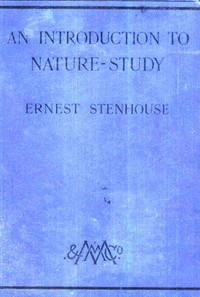An Introduction to Nature-study by E. Stenhouse
"An Introduction to Nature-study" by E. Stenhouse is an educational guide focused on the principles of nature study written in the early 20th century. The publication aims to provide a foundation for understanding natural observation, specifically targeting younger students and teachers in the fields of biology and natural science. This approach emphasizes experiential learning through direct observation of familiar plants and animals, encouraging students to engage with the natural world more meaningfully.
The opening of the book establishes the purpose and structure of the text, highlighting the shift in educational values towards Nature-Study as a way to develop keen observational skills rather than rote memorization of facts. The author introduces the concept that the study of nature should be accessible and engaging for all students, regardless of their prior knowledge. It outlines the book’s methodology, which includes practical instructions for experiments and observations, and the rationale for selecting particular plants and animals for study. By the end of the first chapter, readers are encouraged to make detailed observations and drawings as they explore the growth and structure of various seeds, laying the groundwork for a deeper appreciation of botanical life. (This is an automatically generated summary.)
Read or download for free
| How to read | Url | Size | |||
|---|---|---|---|---|---|
| Read now! | https://www.gutenberg.org/ebooks/61273.html.images | 977 kB | |||
| EPUB3 (E-readers incl. Send-to-Kindle) | https://www.gutenberg.org/ebooks/61273.epub3.images | 13.6 MB | |||
| EPUB (older E-readers) | https://www.gutenberg.org/ebooks/61273.epub.images | 13.6 MB | |||
| EPUB (no images, older E-readers) | https://www.gutenberg.org/ebooks/61273.epub.noimages | 389 kB | |||
| Kindle | https://www.gutenberg.org/ebooks/61273.kf8.images | 13.9 MB | |||
| older Kindles | https://www.gutenberg.org/ebooks/61273.kindle.images | 13.8 MB | |||
| Plain Text UTF-8 | https://www.gutenberg.org/ebooks/61273.txt.utf-8 | 749 kB | |||
| Download HTML (zip) | https://www.gutenberg.org/cache/epub/61273/pg61273-h.zip | 13.7 MB | |||
| There may be more files related to this item. | |||||
Similar Books
About this eBook
| Author | Stenhouse, E. (Ernest) |
|---|---|
| Title | An Introduction to Nature-study |
| Note | Reading ease score: 72.0 (7th grade). Fairly easy to read. |
| Contents | Seeds and their early stages of growth -- How a green plant feeds -- The forms and duties of leaves -- Buds; the history of a twig -- How stems do their work -- Some common flowers -- Grasses -- Common forest trees -- Fruits: how seeds are scattered -- Ferns and horsetails -- Mosses, mushrooms, and moulds -- The rabbit: a typical mammal -- How a rabbit lives -- Some other mammals -- The pigeon: a typical bird -- The development and education of the chick -- Some familiar British birds -- Frogs and tadpoles -- The habits and life-histories of common insects -- Some crustaceans, molluscs, and worms -- Field-work; the school journey, monthly nature calendar. |
| Credits |
Produced by Chris Curnow, Paul Marshall and the Online Distributed Proofreading Team at http://www.pgdp.net |
| Language | English |
| LoC Class | QH: Science: Natural history |
| Subject | Nature study |
| Subject | Natural history -- Study and teaching |
| Category | Text |
| EBook-No. | 61273 |
| Release Date | Jan 30, 2020 |
| Copyright Status | Public domain in the USA. |
| Downloads | 251 downloads in the last 30 days. |
| Project Gutenberg eBooks are always free! | |


